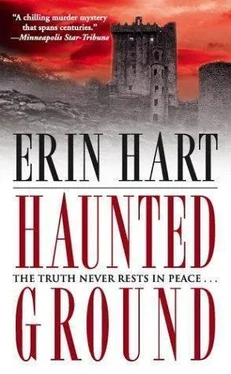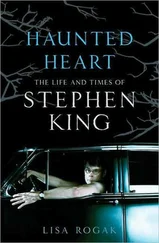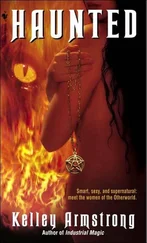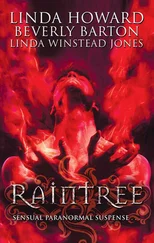What was it that made a person think he could just discard another human being, like something he’d got the best use of and no longer needed? The one thing that she could not begin to fathom was the frightening absence of feeling such an act must require—not even a lack of love or tenderness, but simple fellow feeling. Nora closed her eyes; when she opened them, she saw another door straight ahead of her. Crossing the threshold, she saw that it was a child’s room, a nursery. An old rocking horse stood in one corner, sporting a painted saddle on its well-worn hide, and a real horsehair tail. A small table and chairs, a toy box, a brightly painted wardrobe, and a chest of drawers completed the furnishings. The air in the room was cool and musty, as in the studio upstairs, as if it had been closed up for a long time. She crossed to the nearest window and pulled it open, drinking in the freshness of the scented spring air. Only then did she turn and notice the figure in the bed. Jeremy Osborne was much too large for the child’s cot, but lay curled up on his side. The coverlet was halfheartedly drawn around him, as if he’d grown cold but couldn’t manage to pull it up properly. Abruptly awakened, Jeremy sat up looking slightly disoriented, but also as if he might bolt for the door. He wore the same clothes he’d had on the night before.
“Hello again,” she said, and from the deep flush rising in the boy’s cheeks she surmised that he remembered their first meeting all too well, despite his considerable state of inebriation at the time.
“Sorry, I heard the television and didn’t realize anyone was in here.” Jeremy said nothing, and looked as if he wished he could disappear. He made a feeble attempt to smooth the coverlet beside him. “I’m afraid we got off on the wrong foot last night. What if we forget about it, and start again?” Still no response. “It was you looking at that video, wasn’t it?” Jeremy Osborne looked up for the first time, and Nora thought she saw the faint glimmer of hope in his eyes, only to see it abruptly extinguished.
“You must be Miss Gavin,” said a woman’s voice from the doorway. Nora turned to the elegant, smoothly coiffed woman standing at her elbow. “I’m sorry I haven’t had the opportunity to meet you before; I’m Lucy Osborne.”
“Please call me Nora.”
“What part of America are you from?” Lucy asked. Her cool fingers pressed lightly into Nora’s warm palm.
“Minnesota,” said Nora, aware that this probably meant nothing to Lucy Osborne. “The Midwest. I was actually born in Clare, but my parents emigrated when I was very young.”
“And what made you decide to return to Ireland?” Lucy asked pleasantly, crossing to close and latch the window Nora had left open.
“A temporary teaching job at Trinity College. But I’ve spent summers here since I was a child. It’s always seemed like home to me.”
“I’m sure it has,” Lucy said, with the slightest glance around the room that suggested Nora shouldn’t be feeling quite so much at home here. She changed the subject. “Hugh phoned a short while ago to say that he mightn’t make it home in time for your evening meal, so I’ve taken the liberty of preparing a cold supper for you.”
“That’s very kind. Cormac should be back very shortly, if you wouldn’t mind waiting.”
The polite smile that crossed Lucy Osborne’s face suggested that Nora had a lot to learn about the inhabitants of Bracklyn House. “Jeremy and I usually take our supper in my sitting room.” Lucy crossed to the bed, where her son sat staring silently at the carpet.
“Are you feeling all right, darling? You look a bit pale.” She pressed the back of a hand to his forehead. He still said nothing, so she straightened his collar, which had gotten tucked in on itself. The boy’s reaction to this motherly gesture was nothing more than a slight shrug of one shoulder, but it did not escape Nora’s attention. From below came the sound of a car on the gravel driveway.
“That must be Cormac now,” Nora said.
“If you’d like to go down to the kitchen,” Lucy said. Nora gathered that it was not really a suggestion.
“It was very kind of you to fix a meal—”
“Nonsense, you’re our guests,” Lucy said, finally taking her eyes from her son’s face. “Run along, now, my dear.”
As Nora turned to pull the door closed behind her, she caught a glimpse of mother and son sitting together on the edge of the small bed. Jeremy’s hands still rested, inert, in his lap. Lucy put one hand up to stroke the hair at the nape of his neck once more, and again, he seemed to tense slightly at her touch. Lucy inclined her head until it was touching Jeremy’s, and whispered something in his ear. He made no reply, but nodded twice. Lucy said something more, and although his dark head remained downcast, Nora could have sworn that on the boy’s lips played the barest suggestion of a reluctant smile.
“I don’t know about you,” Nora said to Cormac as they were finishing their meal in the kitchen, “but I find this place depressing as hell. Would you like to go for a walk or something? We’ve a good hour of daylight left.”
“I was going to try to write up some notes from the dig—” he began, but was stopped by Nora’s incredulous look.
“We’ve put in nearly nine hours today already, and we haven’t even had a good look around the place.” She stood up. “Come on. Aren’t you the least bit curious? Have you been down to the lake?” she asked.
“Not yet. Lead on.”
They left by the kitchen door, and walked slowly to take in the magnificent scene. The clouds had broken, and the sun was just beginning to descend, its waning golden light playing on the small, random waves that clapped together on the surface of the lake. A long expanse of green lawn stretched before them, and the forested area that surrounded the lake had been judiciously cleared to afford an almost surreally beautiful vista, a painter’s landscape come to life. A hundred yards from shore on a small island stood a tumbling ruin of gray stone. The lawn sloped gently downhill toward the water, where a low shelf of earth blocked the view of the shallow, stony beachfront from the house.
“Look, there’s a boat!” Nora said, pointing a short distance down the shore, and Cormac had a sudden vision of what she must have been like as a child, with a curiosity and sense of adventure that remained undiminished all these years later. Before he knew it, she was struggling to overturn the bright blue rowboat, so he leapt down the small ledge to give her a hand. The craft was small, but seemed seaworthy enough.
“Hop in,” he said to Nora, “I’ll shove off.” Once aboard, he set the yellow oars in their locks, then turned the rowboat toward the island, and began to pull against the water with long, steady strokes.
“You’re a pretty handy oarsman.”
“We had a boat like this when I was a kid. And I still row a bit, when I have the time. It’s a great place to be alone with your thoughts, out on the water.”
Within a moment or two he managed to pull the little boat alongside the island. What a place to live, exposed out here on a treeless, rocky island, at the mercy of wind and water. Some of the earliest settlements in Ireland had been built on islands in the middle of great marshy lakes, timber-fenced earthwork fortresses surrounded by water to defend against raiders. Later had come stone forts like this one, then the Norman-style tower houses, and eventually fortified mansions like Bracklyn House. All built to keep invaders out. All failing in their purpose, until they were piled, one almost on top of the other. Where in that continuum did the cailin rua fall? Would she ever have seen what Cormac was seeing now? What name might she have had for this island, this body of water?
Читать дальше











